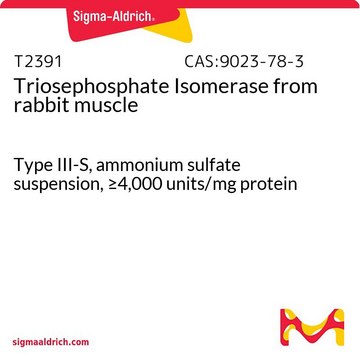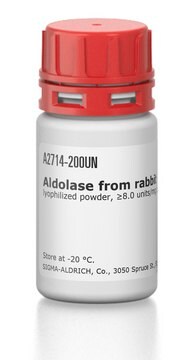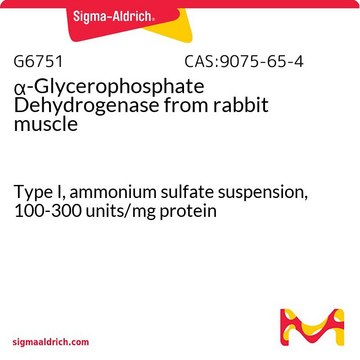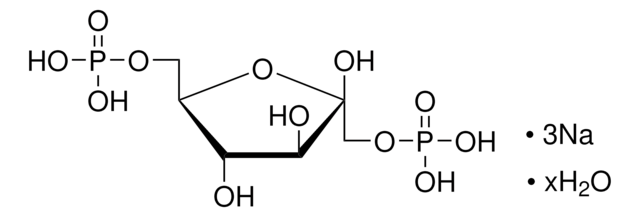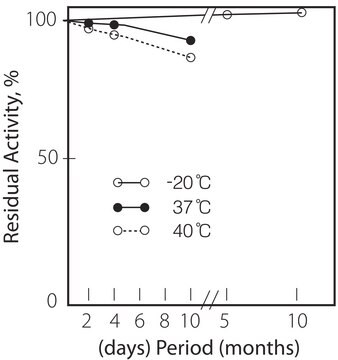T6258
Triosephosphate Isomerase from rabbit muscle
Type X, lyophilized powder, ≥3,500 units/mg protein
Synonym(s):
D-Glyceraldehyde-3-phosphate ketol-isomerase, TPI
About This Item
Recommended Products
type
Type X
form
lyophilized powder
specific activity
≥3,500 units/mg protein
mol wt
calculated mol wt 53.2 kDa
composition
Protein, 60-90% biuret
foreign activity
pyruvate kinase, lactic dehydrogenase, 3-phosphoglyceric phosphokinase, phosphoglucose isomerase, α-glycerophosphate dehydrogenase, aldolase and glyceraldehyde-3-phosphate dehydrogenase ≤0.01%
storage temp.
−20°C
Looking for similar products? Visit Product Comparison Guide
General description
Application
Biochem/physiol Actions
Packaging
Unit Definition
Physical form
Storage Class
11 - Combustible Solids
wgk_germany
WGK 3
flash_point_f
Not applicable
flash_point_c
Not applicable
ppe
Eyeshields, Gloves, type N95 (US)
Certificates of Analysis (COA)
Search for Certificates of Analysis (COA) by entering the products Lot/Batch Number. Lot and Batch Numbers can be found on a product’s label following the words ‘Lot’ or ‘Batch’.
Already Own This Product?
Find documentation for the products that you have recently purchased in the Document Library.
Customers Also Viewed
Our team of scientists has experience in all areas of research including Life Science, Material Science, Chemical Synthesis, Chromatography, Analytical and many others.
Contact Technical Service

